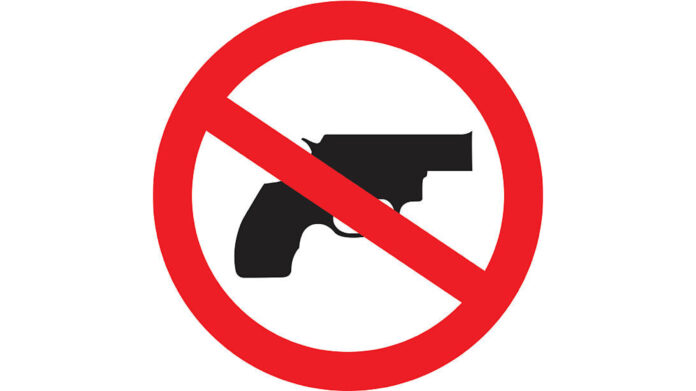
By Orville Williams
The government is hopeful that a soon-to-be-reintroduced gun amnesty will play a role in staving off the type of violence that has been plaguing some of Antigua and Barbuda’s Caribbean neighbours in recent times.
Countries like Jamaica, Trinidad and Tobago and to a lesser extent, Barbados, have had to deal with surges of firearm-involved violence over the past several months and years, which often leave law enforcement playing catch-up in their investigations; such has been the frequency of the incidents.
Here in significantly smaller Antigua, the police have had their hands relatively full over the past few months, investigating several shootings.
The shooting death of a Golden Grove couple at their home back in July sent shockwaves throughout the country, while a 57-year-old woman was shot and injured around a week earlier when two young men committed a robbery, resulting in attempted murder charges for the 20 and 25-year-olds.
That same month, a man sustained an apparent puncture wound to his hip and an injury to his lower back when he was accosted and shot by someone in Liberta. And just some weeks before that, a 19-year-old man was shot in his thigh on June 26 outside a popular nightclub, following an argument with the alleged perpetrator.
Now, while none of these shooting incidents mentioned have been linked to drugs, their frequency – coupled with Antigua and Barbuda’s standing in the illicit trade of cannabis – is cause for concern, bearing in mind what is taking place in some neighbouring territories.
“Antigua and Barbuda is a fairly peaceful place. It accounts for our success in tourism [and] it accounts for the low murder rate…we’ve learned through our parents, churches and educational institutions how to settle our differences peacefully.
“But the drug trade is part of the reason why there is so much violence in many of our Caribbean countries. Since the drug dealers are unable to use the courts to settle their differences, they frequently resort to the kind of violence that we see on the streets,” said Chief of Staff in the Office of the Prime Minister, Lionel Hurst.
Not much information has been revealed so far on the proposed amnesty, but according to the post-Cabinet report, it will last until the end of the year.
Hurst told media during yesterday’s post-Cabinet media briefing that, while no pronouncements have yet been made on the specifics, the process – including the amount and payment for the guns, as well as the logistics involved in the handover of the weapons – will likely be similar to that in place when the amnesty was previously done.
“It will very likely follow the path that has been taken in the past, but I don’t want to say that, because the decision [will come] after consultation with the police, the Defence Force [and] several other law enforcement agencies.
“The method of surrendering and so forth, all that – because it has been done in the past – in all likelihood, the same prices will follow and the same methodology for collecting [the guns] will follow.
“We have agreed to begin the process as soon as possible, almost immediately, and I’m 100 percent certain that we’re going to see very similar kinds of offerings made to those who are holding illegal arms,” Hurst said.
Antigua and Barbuda is often implicated in the illicit drug trade, with law enforcement intercepting shipments, mostly of cannabis, at the country’s ports of entry on a relatively frequent basis.
According to Hurst, getting the guns away from people who may be involved in the trade is one way to prevent an unwanted escalation of shooting incidents between drug players who may use the weapons to “settle their differences”.
“They turn to ‘solving’ it by themselves by shooting at each other. That, of course, disrupts the society [and] that’s not something we want here, so we’re doing our very best to see to it that we can get the guns off the street so that they won’t be using those guns to try to settle their differences,” he added.
The last gun amnesty took place in 2017 to address a spate of gun-related crimes in the country at the time.
Then, the government offered thousands of dollars to anyone who could provide credible information leading to the confiscation of illegal firearms and ammunition, and the successful prosecution of persons possessing such contraband.
